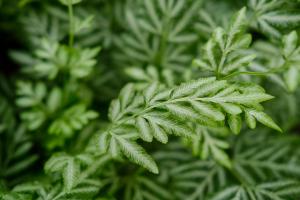Introduction
Water plants in aquarium not only enhance the aesthetic value of your aquarium but also provide a healthy environment for your fish. Taking care of water plants in an aquarium is not as complex as it may seem. A little effort can go a long way in keeping your aquarium looking beautiful and healthy.
Choosing the Right Plants
Choosing the right plants for your aquarium depends on the type of fish you have, the size of your aquarium, and the level of care you are willing to give to the plants. Some popular water plants that are easy to take care of include Java fern, Java moss, Anubias, and Amazon sword. These plants do not require a lot of light or CO2 injection, making them ideal for beginner aquarists.
Providing the Right Environment
Water plants need the right environment to flourish. Provide adequate lighting for your plants, either by using natural sunlight or LED lights. Ensure that the aquarium water pH and temperature levels are suitable for your plants. Most aquatic plants prefer a pH level between 6.5 and 7.5 and a temperature range between 72°F and 78°F. Use substrates such as nutrient-rich soil or gravel to support plant growth.
Regular Water Changes
Regular water changes help to maintain the health of both your fish and plants. Change 10 to 20% of the water in your aquarium every week, and remember to test the water regularly for pH and nutrient levels. Dirty water can harm your water plants, leading to rotting and decay.
Fertilization
Nutrient deficiencies in water plants can cause them to wither and die. You can use aquatic plant fertilizers to provide essential nutrients such as nitrogen, phosphate, and potassium. Most fertilizers are available in liquid, powder, or tablet form. You can also use fish waste and decaying plant matter as natural fertilizers. Ensure that you do not over-fertilize your aquarium as it can lead to algae growth and other problems.
Pruning
Pruning your water plants is necessary to maintain their shape and prevent overcrowding. Remove dead leaves and stems, and trim overgrown plants. Ensure that you do not damage the healthy parts of the plant while pruning. Pruning is also an excellent way of propagating water plants by using the cuttings to grow new plants.
Avoiding Common Mistakes
Avoiding common mistakes can help prevent water plant failure in your aquarium. Avoid overstocking your aquarium with too many fish as they can produce too much waste, leading to nutrient imbalances that can harm water plants. Do not expose your water plants to direct sunlight as it can cause excessive algae growth and harm your plants. Finally, do not move your water plants too often as it can cause stress, leading to plant death.
Conclusion
Taking care of water plants in an aquarium requires a little bit of effort but is not as complicated as it may seem. By providing the right environment, regular water changes, fertilization, pruning, and avoiding common mistakes, you can enjoy a healthy and vibrant aquarium with beautiful and lush water plants.

 how many times do yo...
how many times do yo... how many planted tre...
how many planted tre... how many pine trees ...
how many pine trees ... how many pecan trees...
how many pecan trees... how many plants comp...
how many plants comp... how many plants can ...
how many plants can ... how many plants and ...
how many plants and ... how many pepper plan...
how many pepper plan...
































